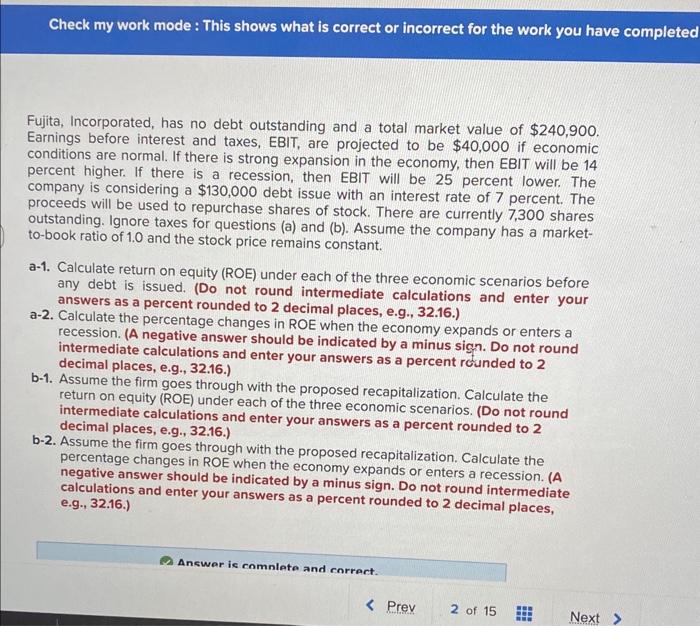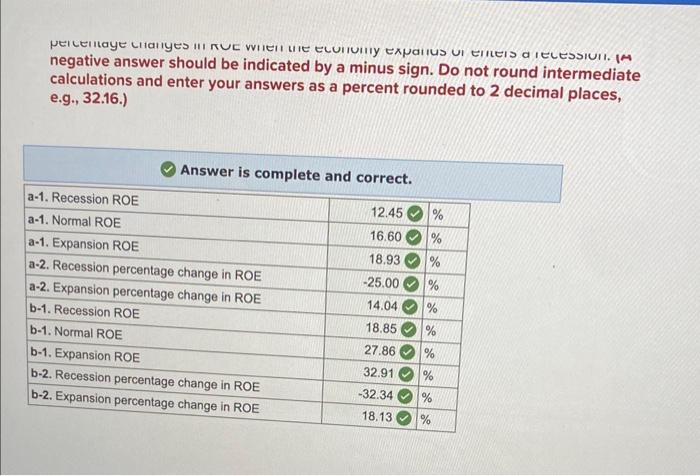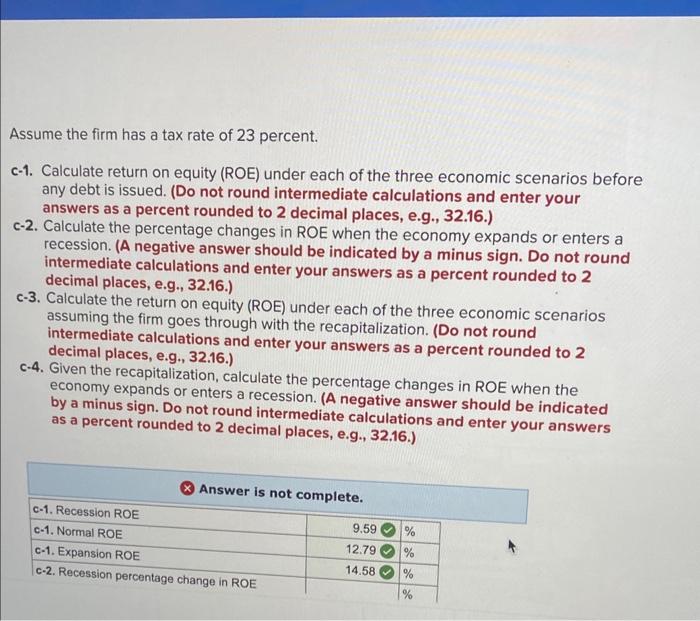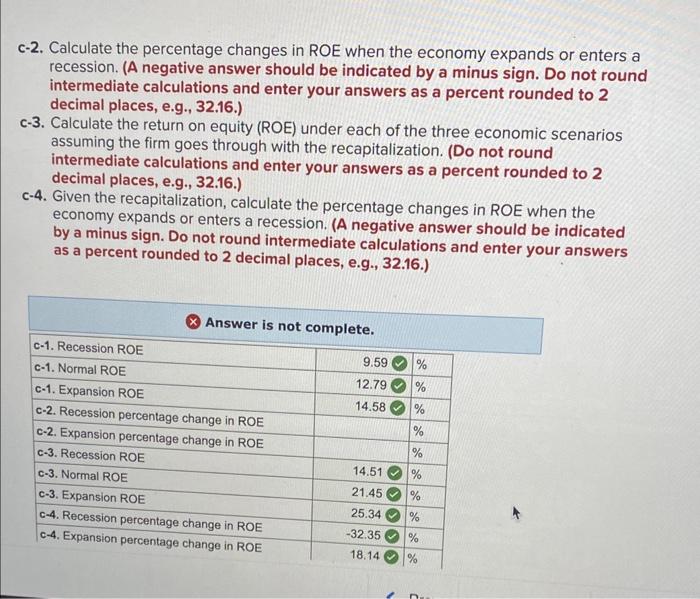Fujita, Incorporated, has no debt outstanding and a total market value of $240,900. Earnings before interest and taxes, EBIT, are projected to be $40,000 if economic conditions are normal. If there is strong expansion in the economy, then EBIT will be 14 percent higher. If there is a recession, then EBIT will be 25 percent lower. The company is considering a $130,000 debt issue with an interest rate of 7 percent. The proceeds will be used to repurchase shares of stock. There are currently 7,300 shares outstanding. Ignore taxes for questions (a) and (b). Assume the company has a marketto-book ratio of 1.0 and the stock price remains constant. a-1. Calculate return on equity (ROE) under each of the three economic scenarios before any debt is issued. (Do not round intermediate calculations and enter your answers as a percent rounded to 2 decimal places, e.g., 32.16.) a-2. Calculate the percentage changes in ROE when the economy expands or enters a recession. (A negative answer should be indicated by a minus sign. Do not round intermediate calculations and enter your answers as a percent runded to 2 decimal places, e.g., 32.16.) b-1. Assume the firm goes through with the proposed recapitalization. Calculate the return on equity (ROE) under each of the three economic scenarios. (Do not round intermediate calculations and enter your answers as a percent rounded to 2 decimal places, e.g., 32.16.) b-2. Assume the firm goes through with the proposed recapitalization. Calculate the percentage changes in ROE when the economy expands or enters a recession. (A) negative answer should be indicated by a minus sign. Do not round intermediate e.g., 32.16.) negative answer should be indicated by a minus sign. Do not round intermediate calculations and enter your answers as a percent rounded to 2 decimal places, e.g., 32.16.) Assume the firm has a tax rate of 23 percent. c-1. Calculate return on equity (ROE) under each of the three economic scenarios before any debt is issued. (Do not round intermediate calculations and enter your answers as a percent rounded to 2 decimal places, e.g., 32.16.) c-2. Calculate the percentage changes in ROE when the economy expands or enters a recession. ( A negative answer should be indicated by a minus sign. Do not round intermediate calculations and enter your answers as a percent rounded to 2 decimal places, e.g., 32.16.) c-3. Calculate the return on equity (ROE) under each of the three economic scenarios assuming the firm goes through with the recapitalization. (Do not round intermediate calculations and enter your answers as percent rounded to 2 decimal places, e.g., 32.16.) c-4. Given the recapitalization, calculate the percentage changes in ROE when the economy expands or enters a recession. (A negative answer should be indicated by a minus sign. Do not round intermediate calculations and enter your answers as a percent rounded to 2 decimal places, e.g., 32.16.) c-2. Calculate the percentage changes in ROE when the economy expands or enters a recession. (A negative answer should be indicated by a minus sign. Do not round intermediate calculations and enter your answers as a percent rounded to 2 decimal places, e.g., 32.16.) c-3. Calculate the return on equity (ROE) under each of the three economic scenarios assuming the firm goes through with the recapitalization. (Do not round intermediate calculations and enter your answers as percent rounded to 2 decimal places, e.g., 32.16.) c-4. Given the recapitalization, calculate the percentage changes in ROE when the economy expands or enters a recession. (A negative answer should be indicated by a minus sign. Do not round intermediate calculations and enter your answers as a percent rounded to 2 decimal places, e.g., 32.16.)










